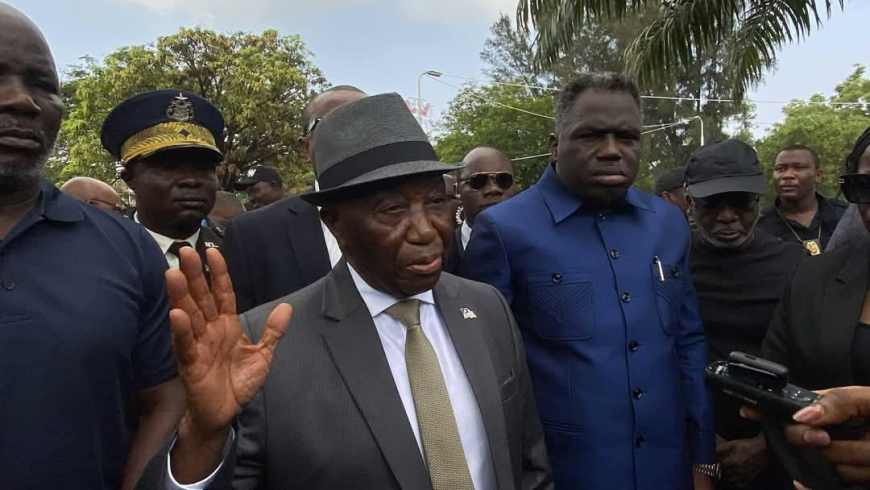President Boakai Announces Liberia’s Qualification for $500 Million MCC Compact

Monrovia Liberia: President Joseph Boakai announced that Liberia has qualified for a second Millennium Challenge Corporation (MCC) Compact, which could bring up to $500 million in development aid. The news came after a call from Washington, D.C., confirming Liberia’s qualification due to improvements in governance and reforms.
In his speech, President Boakai highlighted that this achievement will unlock crucial funding to address challenges in the country’s growth, particularly in areas like infrastructure, energy, and economic development.
Although the exact funding amount was not disclosed, reports suggest that MCC second compacts typically range from $350 million to $500 million, depending on the country’s needs and capacity.
The President emphasized that this success is a collective victory for all Liberians and demonstrates the international community’s trust in the country’s progress. He urged citizens to stay united and hopeful, saying that the funding will play a significant role in Liberia’s long-term development.
More details about how the funds will be used will be shared in the coming weeks.
The Millennium Challenge Corporation (MCC) is a U.S. government agency established in 2004 to promote global economic development and reduce poverty through grants and assistance. It focuses on supporting countries that demonstrate a strong commitment to reforms in key areas such as governance, economic policy, and human development.
Here are key points about the MCC:
Performance-Based Approach: Countries are selected based on their performance in various areas, including governance, economic freedom, rule of law, and anti-corruption efforts. The MCC uses a set of indicators to evaluate a country’s eligibility for assistance.
Countries must meet certain criteria such as free markets, transparent governance, and the absence of corruption. MCC’s support is aimed at countries that are serious about implementing reforms to foster long-term economic growth.
A Compact is a large, multi-year agreement between the MCC and a partner country, designed to fund specific development projects. These projects aim to remove barriers to economic growth, reduce poverty, and promote sustainability. Each compact is tailored to the specific needs and priorities of the country.
Key Areas of Focus: MCC compacts often focus on infrastructure (like roads, water systems, and electricity), agriculture, education, health, and economic policy reforms.
Compact Development: After a country qualifies, the MCC works with the government and other stakeholders to design a compact that addresses the country’s development priorities.
Implementation: Once approved, the compact is implemented over several years. The projects are often managed by the country’s government, but the MCC provides oversight and technical assistance.
Evaluation: At the end of the compact period, the MCC evaluates the effectiveness of the projects to ensure that they have led to sustainable improvements.
The MCC typically offers large-scale funding, with compacts ranging from $100 million to $1 billion, depending on the country’s needs and priorities. The second MCC compact for Liberia, for example, could be worth between $350 million and $500 million.
In addition to the larger Compact programs, the MCC also runs Threshold Programs. These are smaller, targeted grants given to countries that are close to meeting MCC criteria but need additional assistance to qualify for a full compact. These programs aim to help countries improve in specific areas like governance or economic policy.
Since its establishment, the MCC has worked with more than 40 countries and has invested over $14 billion in various development projects. Its programs have helped improve infrastructure, boost agricultural productivity, and foster greater economic independence in several partner nations.
One of the MCC’s key principles is sustainability. It seeks to ensure that the projects funded by its compacts lead to long-term positive outcomes for the country. This includes ensuring that the country has the capacity to manage and maintain projects after the MCC’s involvement ends.
In summary, the Millennium Challenge Corporation plays a crucial role in supporting developing countries by providing funding for projects that stimulate economic growth, improve governance, and reduce poverty, with an emphasis on long-term sustainability.
What's Your Reaction?






































































